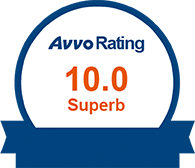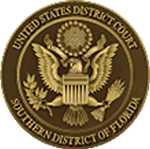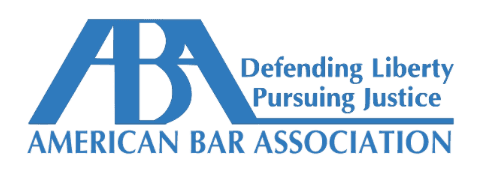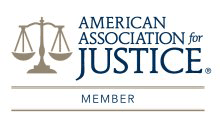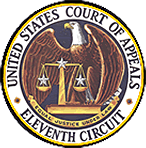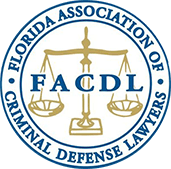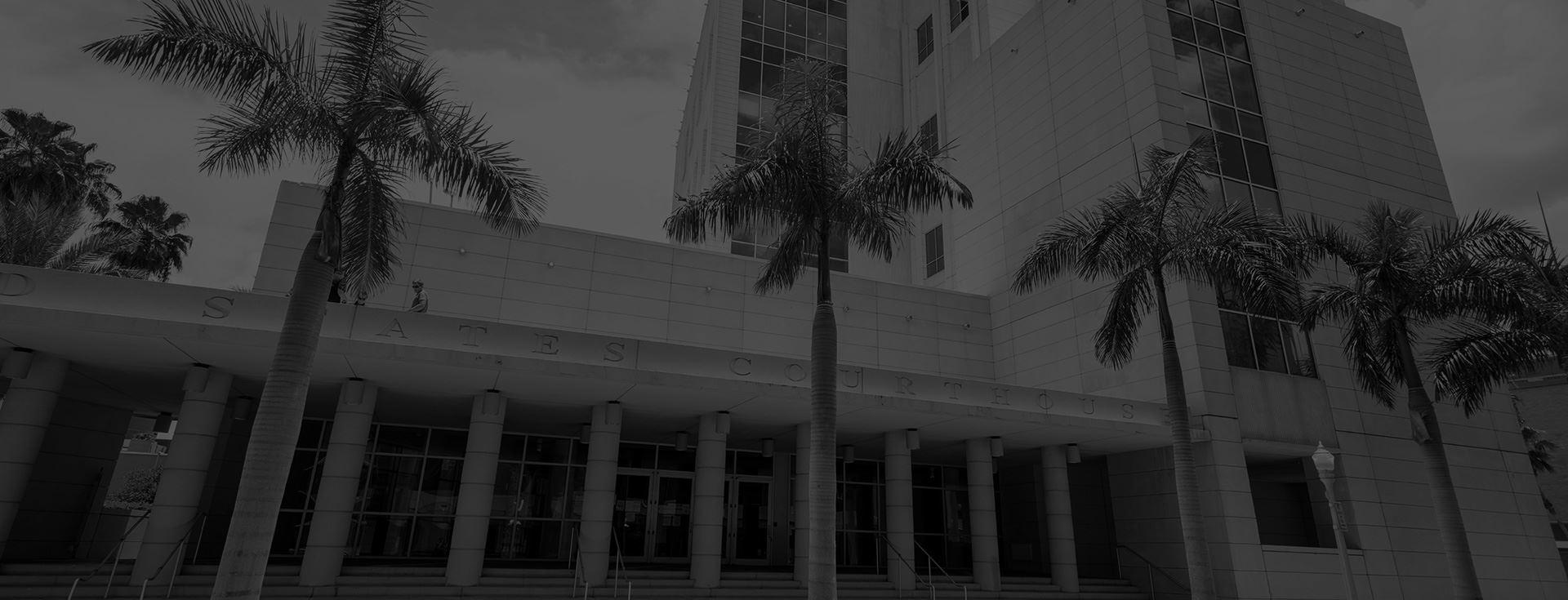
Your Case Deserves Immediate Attention - Call Hubbs Law Today
Possession of Drug Paraphernalia Lawyers in Miami
Florida Paraphernalia Laws
Possession of drug paraphernalia is a common offense charged in Miami and Miami-Dade County. Under state law, the offense is a first-degree misdemeanor punishable by up to 12 months in jail and a fine of up to $1,000.
Drug possession charges—such as possession of marijuana, possession of a controlled substance, or possession with intent to sell—often accompany drug paraphernalia charges. These added drug charges bring the potential of more time in jail (or prison) and higher fines, as well as the possible loss of driving privileges if a person is convicted.
Additionally, a criminal conviction for possession of drug paraphernalia appears on a person's permanent criminal record and may adversely affect his or her ability to gain admission to professional schools, work in certain jobs, or obtain housing or financial assistance. A conviction for an offense related to a controlled substance violation will also result in deportation from the United States for non-citizens (unless certain exceptions apply).
If you or your loved one has been charged with possession of drug paraphernalia in Miami or the nearby areas, call Hubbs Law Firm at (305) 570-4802or contact us onlinefor a free consultation.
Possession of Drug Paraphernalia Florida
If you have been arrested on a misdemeanor drug paraphernalia charge under Florida Statute § 893.147 in Miami or anywhere in Miami-Dade County, Florida, then you need an experienced attorney to explain the legal issues related to your situation. At Hubbs Law Firm, our Miami possession of drug paraphernalia lawyers can help you understand your options so that you can make the best decisions about how to proceed.
Our founding attorney, E.J. Hubbs, is Board Certified in Criminal Trial Law by the Florida Bar. Certification is the highest level of evaluation conferred by the Florida Bar for competency and experience in a particular area of the law and reflects the highest professionalism and ethics in the practice of law.
Our attorneys use their broad knowledge of Florida drug laws to challenge the drug charges their clients face. We serve clients throughout Miami-Dade County, including Miami, Miami Beach, South Miami, Miami Gardens, Miami Springs, Tamiami, Hialeah, Kendall and Pinecrest, as well as students at Florida International University, the University of Miami and Miami Dade College.
Call our firm to schedule an appointment with a criminal defense attorney focused on drug crimes in Miami and the surrounding areas.
We can fight to have your drug paraphernalia charge reduced or dismissed. Call (305) 570-4802today to find out how.
What Is Considered Drug Paraphernalia?
Under Florida law, it is unlawful for anyone to use or possess with the intent to use any type of drug paraphernalia.
According the Florida Statutes, Title XLVI, Chapter 893.145, the definition of “drug paraphernalia” means all equipment, products, and materials of any kind which are used, intended for use, or designed for use in planting, propagating, cultivating, growing, harvesting, manufacturing, compounding, converting, producing, processing, preparing, testing, analyzing, packaging, repackaging, storing, containing, concealing, transporting, injecting, ingesting, inhaling, or otherwise introducing into the human body a controlled substance.
Florida has established laws related to the use or possession of drug paraphernalia, the manufacture or transportation of drug paraphernalia, the delivery of drug paraphernalia to a minor, the advertisement of drug paraphernalia, and the retail sale of drug paraphernalia (See Florida Statutes, Title XLVI, Chapter 893.147).
List of Potential Drug Paraphernalia Items
Even when an item suspected of being drug paraphernalia is new and unused, a person may be arrested for possession of drug paraphernalia in Florida. Sometimes, everyday household items such as sandwich bags, straws, or soda bottles may be considered drug paraphernalia by the police, and the discovery of them or similar otherwise innocuous items may result in the much more serious charge of drug trafficking—a felony.
Florida Statutes, Title XLVI, Chapter 893.145 lists items that may be potentially considered drug paraphernalia, including:
- Kits used, used, intended for use, or designed for use in the planting, propagating, cultivating, growing, or harvesting of any species of plant which is a controlled substance or from which a controlled substance can be derived;
- Kits used, intended for use, or designed for use in manufacturing, compounding, converting, producing, processing, or preparing controlled substances;
- Isomerization devices used, intended for use, or designed for use in increasing the potency of any species of plant listed as a controlled substance;
- Testing equipment used, intended for use, or designed for use in identifying or in analyzing the strength, effectiveness, or purity of controlled substances;
- Scales and balances used, intended for use, or designed for use in weighing or measuring controlled substances;
- Diluents and adulterants—such as quinine hydrochloride, mannitol, mannite, dextrose, and lactose—used, intended for use, or designed for use in cutting controlled substances;
- Separation gins and sifters used, intended for use, or designed for use in removing twigs and seeds from or in otherwise cleaning or refining cannabis;
- Blenders, bowls, containers, spoons, and mixing devices used, intended for use, or designed for use in compounding controlled substances;
- Capsules, balloons, envelopes, and other containers used, intended for use, or designed for use in packaging small quantities of controlled substances;
- Containers and other objects used, intended for use, or designed for use in storing, concealing, or transporting controlled substances;
- Hypodermic syringes, needles, and other objects used, intended for use, or designed for use in parenterally injecting controlled substances into the human body;
- Objects used, intended for use, or designed for use in ingesting, inhaling, or otherwise introducing cannabis, cocaine, hashish, hashish oil, or nitrous oxide into the human body, such as:
- Metal, wooden, acrylic, glass, stone, plastic, or ceramic pipes, with or without screens, permanent screens, hashish heads, or punctured metal bowls
- Water pipes
- Carburetion tubes and devices
- Roach clips, meaning objects used to hold burning material, such as a cannabis cigarette, that has become too small or too short to be held in the hand
- Miniature cocaine spoons and cocaine vials
- Chamber pipes
- Carburetor pipes
- Electric pipes
- Air-driven pipes
- Chillums
- Bongs
- Ice pipes or chillers
- A cartridge or canister, which means a small metal device used to contain nitrous oxide
- A charger, sometimes referred to as a "cracker," which means a small metal or plastic device that contains an interior pin that may be used to expel nitrous oxide from a cartridge or canister
- A charging bottle, which means a device that may be used to expel nitrous oxide from a cartridge or canister
- A whip-it, which means a device that may be used to expel nitrous oxide
- A tank
- A balloon
- A hose or tube
- A two-liter soda bottle
- Tin foil
- Duct tape
What Are Some Possible Defenses to Drug Paraphernalia Charges in Florida?
In order to secure a conviction, a prosecutor must establish beyond all reasonable doubt that a possessed item was possessed with the intent to be used in consuming illegal drugs.
Evidence that may be considered by the court to determine whether an item or object was intended for drug use includes:
- Statements by an owner or by anyone in control of the object concerning its use;
- The proximity of the object, in time and space, to a direct violation of the law;
- The proximity of the object to controlled substances;
- The existence of any residue of controlled substances on the object;
- Direct or circumstantial evidence of the intent of an owner or of anyone in control of the object to deliver it to persons who he or she knows, or should reasonably know, intend to use the object to facilitate a violation of this act; the innocence of an owner or of anyone in control of the object as to a direct violation of this act shall not prevent a finding that the object is intended for use or designed for use as drug paraphernalia;
- Instructions, oral or written, provided with the object concerning its use;
- Descriptive materials accompanying the object which explain or depict its use;
- Any advertising concerning its use;
- The manner in which the object is displayed for sale;
- Whether the owner or anyone in control of the object is a legitimate supplier of like or related items to the community, such as a licensed distributor of or dealer in tobacco products;
- Direct or circumstantial evidence of the ratio of sales of the object or objects to the total sales of the business enterprise;
- The existence and scope of legitimate uses for the object in the community;
- Expert testimony concerning its use.
In many possession of drug paraphernalia cases, a "motion to suppress" the evidence can be filed if the circumstances surrounding the stop, search, detention, or arrest were in violation of the Fourth Amendment to the U.S. Constitution, which outlaws unreasonable searches and seizures.
In other cases, a "motion to dismiss" the charge can be filed if the prosecutor does not have sufficient evidence to prove that a person was in either actual or constructive possession of the item alleged to be drug paraphernalia.
Other defenses exist to fight a possession of drug paraphernalia charge, including showing that the alleged item does not qualify as "drug paraphernalia."
Penalties for Possession of Drug Paraphernalia in Florida
Possession of drug paraphernalia is a first-degree misdemeanor in Florida, which is punishable by up to 12 months in jail and a fine of up to $1,000.
In addition, drug paraphernalia is deemed to be contraband, which shall be subject to civil forfeiture (See Florida Statutes, Title XLVI, Chapter 893.145).
Federal Charges for Possession of Drug Paraphernalia
A federal conviction for possession of drug paraphernalia, although rare, may result in imprisonment for up to three years, plus a fine.
In a highly-publicized 2004 case, comedian Tommy Chong was convicted at the federal level of distribution of drug paraphernalia and served nine months in federal prison, paid a fine of $20,000, forfeited $103,514 in property, and lost all the merchandise seized during the raid of his son's bong sales business, according to news reports.
Has Possession of Drug Paraphernalia Been Decriminalized Anywhere in Florida?
A handful of communities have decriminalized both the possession of small amounts of marijuana (under 20 grams) as well as the possession of drug paraphernalia.
Police in these jurisdictions—which at the beginning of 2016 included Florida's largest county, Miami-Dade County, and the City of Miami Beach, as well as a few other counties and cities, all in South Florida—have the discretion to issue a non-criminal citation instead of making an arrest. The fine for such a violation is $100 with no arrest, no court date or trial, and no criminal record of a crime.
According to advocates of the policy, issuing citations instead of making arrests for possession of small amounts of marijuana or drug paraphernalia allows law enforcement to focus on more serious crimes, while courts save money on prosecutions and court dockets are reduced.
Find an Attorney for Drug Paraphernalia Charges in Miami
If you were arrested or ticketed by the Miami police, Miami-Dade County sheriff's deputies, or a Florida Highway Patrol trooper for possession of drug paraphernalia, you should consider seeking the immediate advice of a local attorney who is experienced in defending people against drug paraphernalia charges.
If we accept your case, Hubbs Law Firm will work hard to scrutinize the evidence against you in an effort to have your drug paraphernalia charges reduced or dismissed. We are prepared to aggressively defend you against a possession of drug paraphernalia charge and we are prepared to take your case to trial, if necessary.
At Hubbs Law, we represent people throughout Miami-Dade County, including the cities of Miami, Miami Beach, Hialeah, Miami Gardens, South Miami, Homestead, Doral and Palmetto Bay, as well as students attending college in the Miami area. Our clients range from Miami natives to visitors from around the world. We always work for the best possible results, and we often challenge the evidence or the arrest itself.
Contact ustoday at (305) 570-4802to schedule a free consultation with our experienced Miami drug crime lawyers.
Additional Resources
- Florida Statutes, Title XLVI, Chapter 893.145 – Read the section of the Florida statutes that defines drug paraphernalia and lists items that may be potentially considered drug paraphernalia.
- Florida Statutes, Title XLVI, Chapter 893.146 – Read the section of the Florida statutes that explains the determination of whether an item or object is drug paraphernalia.
- Florida Statutes, Title XLVI, Chapter 893.147 – Read the section of the Florida statutes that addresses drug abuse prevention and control as applied to drug paraphernalia.
- Drug Enforcement Administration (DEA)– The DEA is the primary federal agency tasked with investigating federal drug crimes. Click on this link for information on the agency, press releases, and information on how to leave a tip of suspected drug crimes.
- Miami-Dade Police Department (Narcotics Bureau) - The Narcotics Unit with the Miami-Dade Police Department handles state investigations of drug crimes in Miami-Dade County.
- City of Miami Police Department (Narcotics)- The Narcotics Unit with the City of Miami Police Department handles state investigations of drug crimes in the city of Miami.
- Florida Department of Law Enforcement (FDLE)- Click here to see statistics for drug and other crimes compiled by FDLE.

Attorneys E.J. & Erika Hubbs
As professional Miami criminal defense attorneys, we take every case personally give every client the deliberate care it deserves. Our clients become part of our family and we fight relentlessly for their rights. Read more about us to find out how we can help you.

-
Now my children and I are safe and I can’t say enough how amazing and attentive he was to my concerns.
Elena Varela -
Me and my wife were instantly pleased with her knowledge and professionalism
Carlos Urbina -
She was very accommodating with our work schedules and we felt comfortable with her knowledge and experience with immigration cases
Dolsin Rivas


